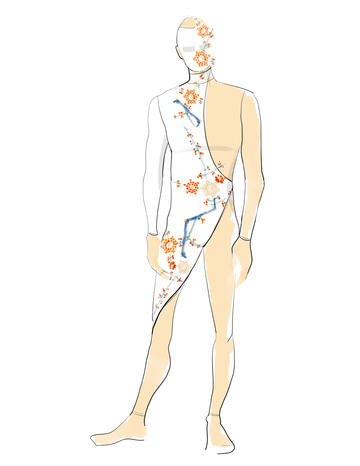
Photo Credit: Harriet Jung, costume designer
Project Team:
Meredith Martin
Associate Professor of Art History, New York University and the Institute of Fine Arts
Phil Chan
Co-founder of Final Bow for Yellowface
Mia Jackson
Curator of Decorative Arts at Waddesdon Manor
Kate Tunstall
Professor of French, Chevalier dans l’Ordre des Palmes Académiques
Sir Lindsay Owen-Jones Fellow in Modern Languages, Worcester College; Fine Art Organizing Tutor, Worcester College
Partner Organisation:
Instruments of Time and Truth
About the project:
In 1739 at a château outside of Paris, a group of French elites staged a ballet pantomime known as the Ballet des Porcelaines or The Teapot Prince. Written by the comte de Caylus, with music by Grandval, it tells the story of a prince searching for his lover on an exotic island ruled by a Chinese sorcerer, who turns trespassers into porcelain. On the one hand an Orientalist fairy tale, the ballet is also an allegory for the European desire to know and possess the secrets of porcelain manufacture. Final Bow for Yellowface co-founder Phil Chan and NYU professor Meredith Martin have reimagined this lost baroque work with an Asian-American creative team, aiming to make it relevant and meaningful for a contemporary, multiracial audience. After premiering the ballet in the galleries of The Metropolitan Museum of Art in December 2021, they will bring it to numerous sites in the U.S. and Europe, including Waddesdon Manor and the Royal Pavilion at Brighton.
Partner Organisations:

Ingo Maurer, Porca Miseria, 2003; porcelain, steel and halogen light; Rothschild Foundation, Waddesdon; acc. no. 124. 2003; (c) Ingo Maurer GmbH, Munich. Photo: Waddesdon Image Library, Mike Fear
Waddesdon Manor
Worcester College
Instruments of Time & Truth
The British Society for Eighteenth-Century Studies


